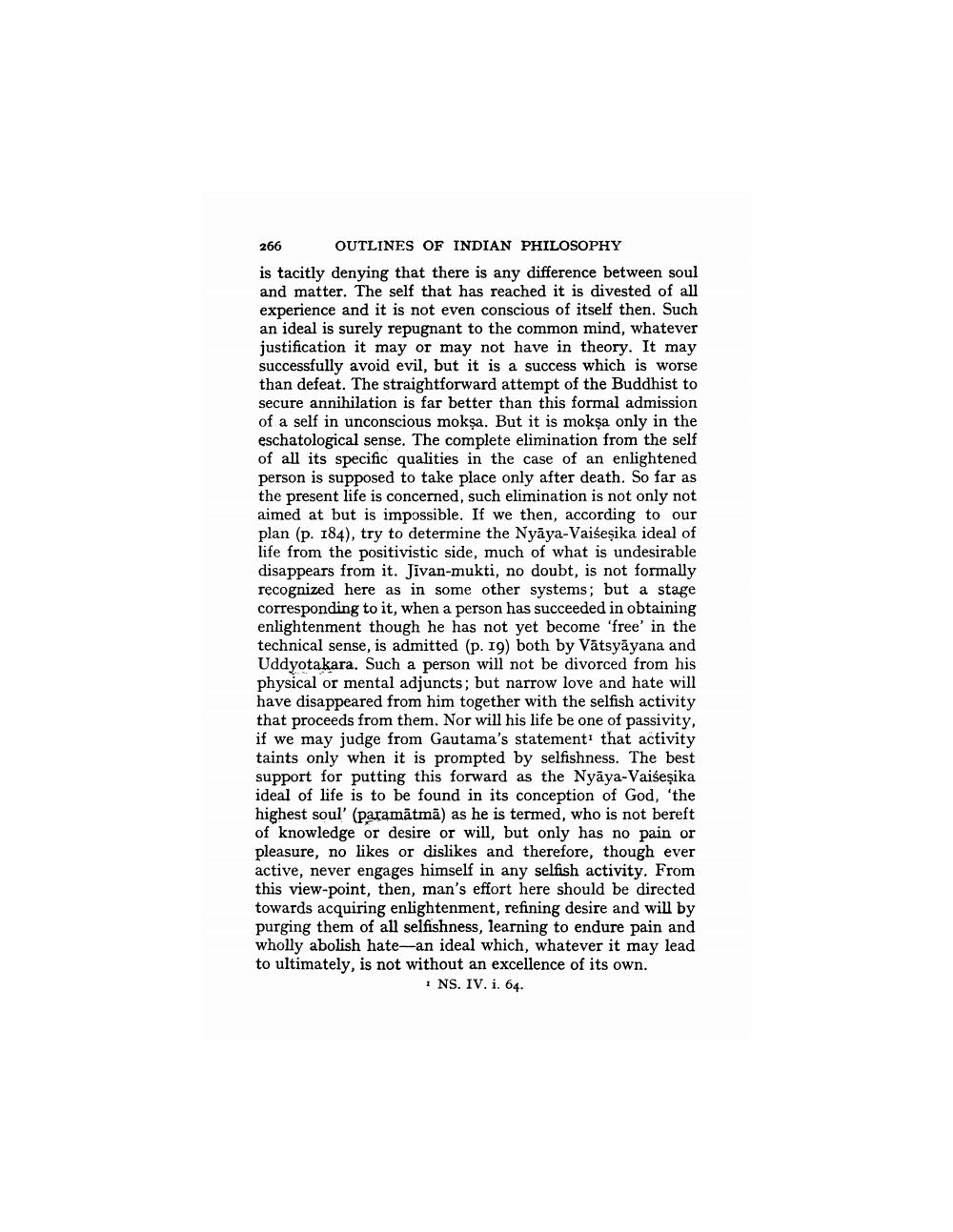________________
266
OUTLINES OF INDIAN PHILOSOPHY
is tacitly denying that there is any difference between soul and matter. The self that has reached it is divested of all experience and it is not even conscious of itself then. Such an ideal is surely repugnant to the common mind, whatever justification it may or may not have in theory. It may successfully avoid evil, but it is a success which is worse than defeat. The straightforward attempt of the Buddhist to secure annihilation is far better than this formal admission of a self in unconscious mokṣa. But it is mokşa only in the eschatological sense. The complete elimination from the self of all its specific qualities in the case of an enlightened person is supposed to take place only after death. So far as the present life is concerned, such elimination is not only not aimed at but is impossible. If we then, according to our plan (p. 184), try to determine the Nyaya-Vaiśeṣika ideal of life from the positivistic side, much of what is undesirable disappears from it. Jivan-mukti, no doubt, is not formally recognized here as in some other systems; but a stage corresponding to it, when a person has succeeded in obtaining enlightenment though he has not yet become 'free' in the technical sense, is admitted (p. 19) both by Vätsyāyana and Uddyotakara. Such a person will not be divorced from his physical or mental adjuncts; but narrow love and hate will have disappeared from him together with the selfish activity that proceeds from them. Nor will his life be one of passivity, if we may judge from Gautama's statement1 that activity taints only when it is prompted by selfishness. The best support for putting this forward as the Nyaya-Vaiśeşika ideal of life is to be found in its conception of God, 'the highest soul' (paramātmā) as he is termed, who is not bereft of knowledge or desire or will, but only has no pain or pleasure, no likes or dislikes and therefore, though ever active, never engages himself in any selfish activity. From this view-point, then, man's effort here should be directed towards acquiring enlightenment, refining desire and will by purging them of all selfishness, learning to endure pain and wholly abolish hate-an ideal which, whatever it may lead to ultimately, is not without an excellence of its own.
INS. IV. i. 64.




